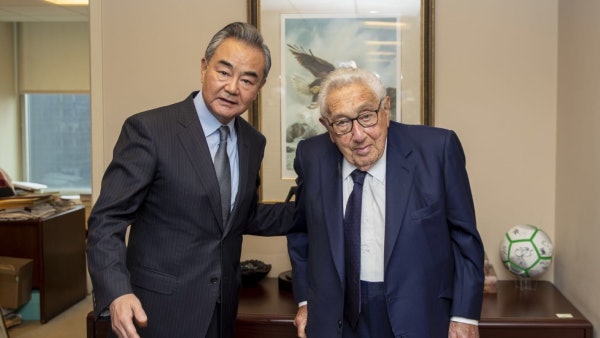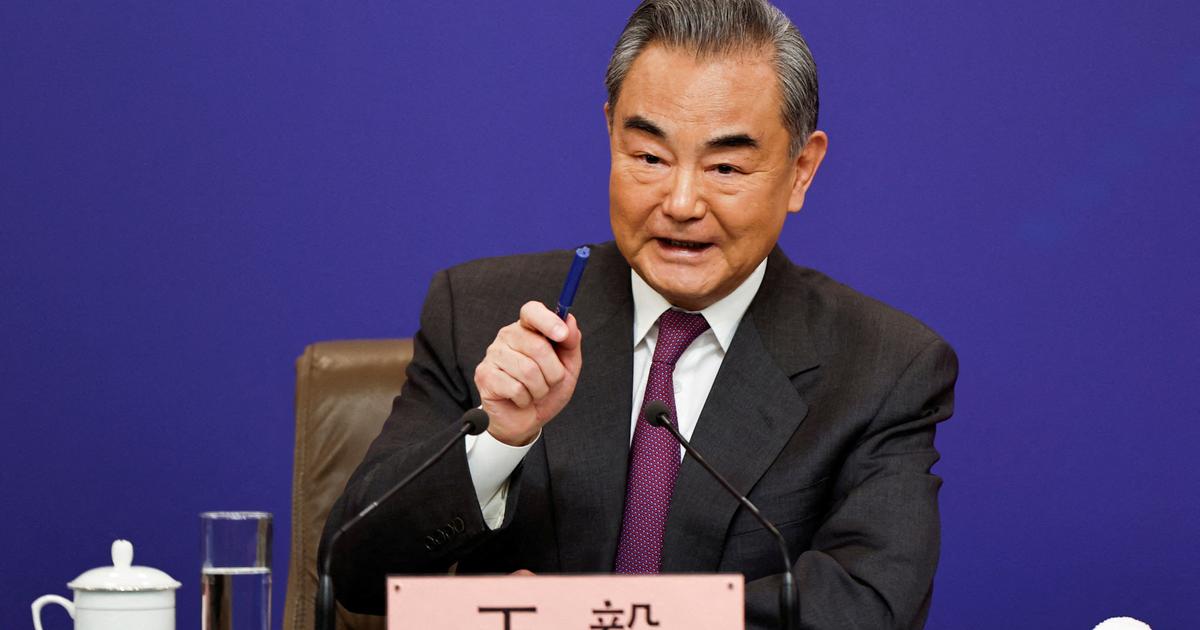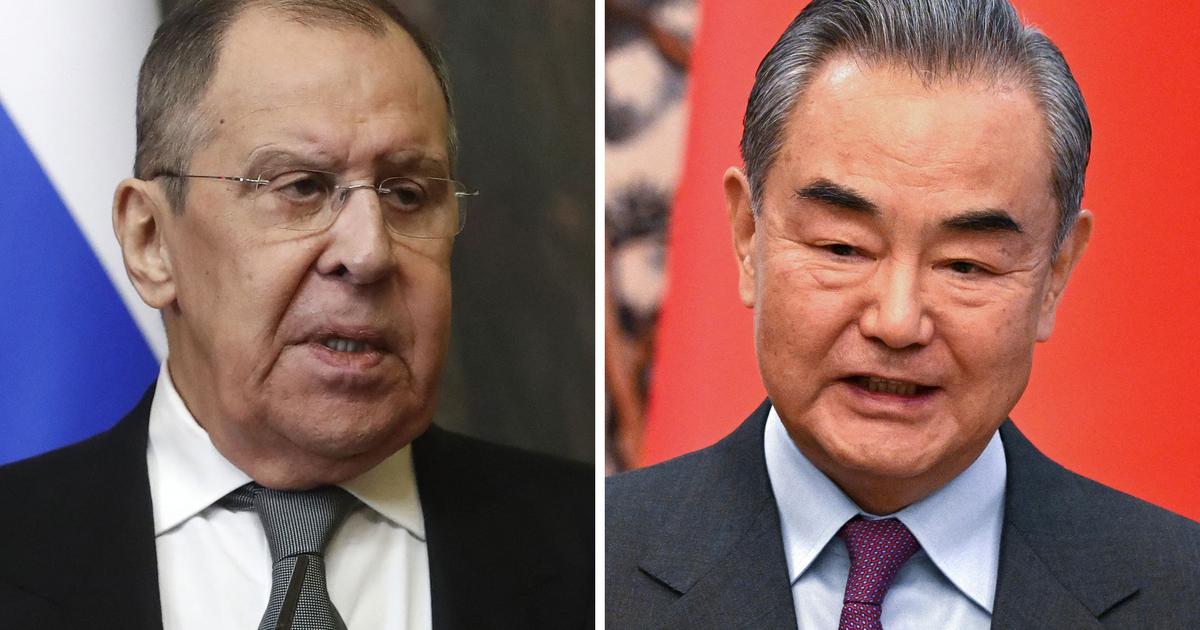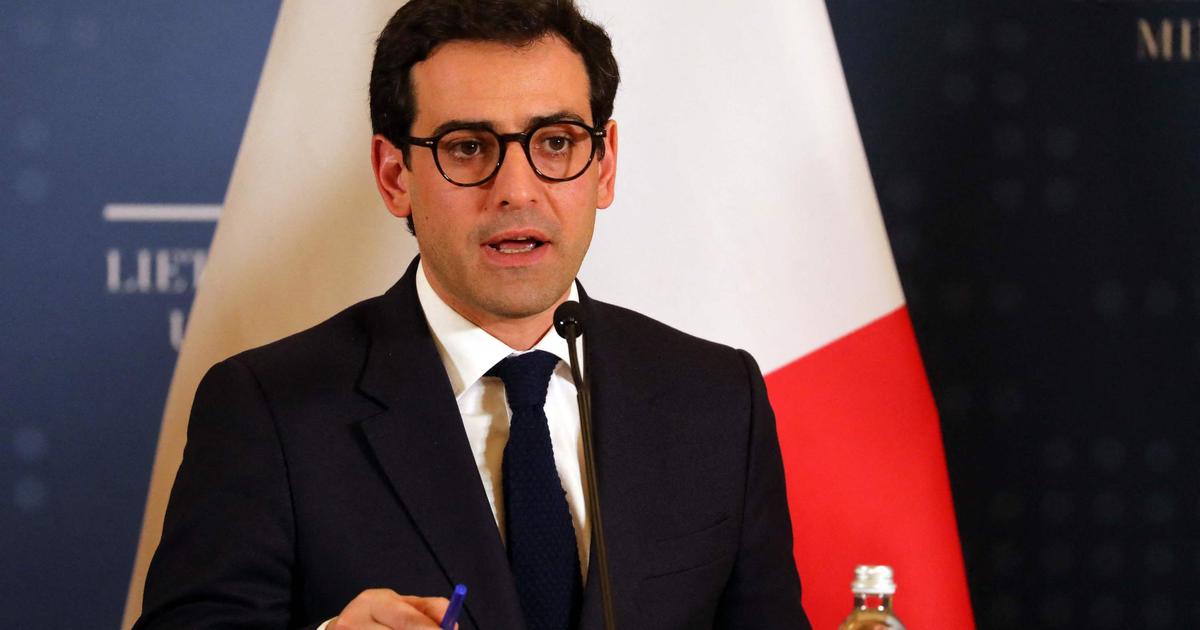On September 20, Chinese Foreign Ministry spokesman Wang Wenbin said that Chinese State Councilor and Foreign Minister Wang Yi met with former US Secretary of State Henry Kissinger (also translated as Ji Xinji) in New York on the 19th.
During the meeting, Wang Yi said that the Speaker of the U.S. House of Representatives Nancy Pelosi (also translated as Pelosi, Pelosi or Polosi) visited the Taiwan region, the U.S. Senate considered the Taiwan Policy Act, and U.S. President Joe Biden Biden's remarks about helping defend Taiwan have seriously challenged the three Sino-US joint communiques and seriously undermined the political foundation of Sino-US relations.
And the more rampant "Taiwan independence" is, the less likely the peaceful resolution of the Taiwan issue will be.
Wang Yi pointed out that in order to maintain peace and stability in the Taiwan Strait, the United States should return to the original meaning of one China and oppose and stop "Taiwan independence".
Out of a wrong perception of China, the US insists on viewing China as its main rival and a long-term challenge. Some people even describe the success story of China-US exchanges as a narrative of failure, which neither respects history nor itself.
Wang Yi further expressed to Kissinger that he has made historical contributions to the establishment and development of China-US relations. The Chinese side appreciates Kissinger's constant friendship with China, has confidence in China-US relations, and hopes that Kissinger can continue to play a unique and important role. It will help the relationship between the two countries get back on track as soon as possible.
In this regard, Kissinger reviewed the historical latitude and longitude of the "Shanghai Communiqué" reached with Chinese leaders, and said that the extreme importance of the Taiwan issue to China should be fully understood, the United States and China should have dialogue rather than confrontation, and should create a bilateral relationship of peaceful coexistence. relation.
Looking at the dialogue between Wang Yi and Kissinger, the two revealed the current predicament of Sino-US relations.
On September 19, 2022, State Councilor and Foreign Minister Wang Yi met with former US Secretary of State Henry Kissinger in New York.
(Chinese Foreign Ministry)
When China becomes America's 'main adversary'
First of all, Wang Yi and Kissinger both agree that the military risks in the Taiwan Strait are rising under the "derailment" of Sino-US relations.
Wang Yi particularly emphasized that the US insisted on taking China as its main rival and long-term challenge out of a wrong perception of China, which led to the current situation.
Looking back on history, China has become the "main adversary" in the perception of the United States, dating back to the time of Barack Obama.
In 2012, the Obama administration proposed the "Asia-Pacific Rebalancing" strategy, which began to strengthen the deployment of conventional forces in the Asia-Pacific region and gradually concentrated missile defense systems in Northeast Asia.
After the 2015 U.S. China policy debate, this trend gradually increased. The Obama administration no longer insisted on maintaining a "strategically stable" relationship with China. The region has created tensions, stressing that the United States will "regularly demonstrate willingness and capability to act" ready to "prevent China from achieving its goals".
After Donald Trump (also translated as Trump) took office, the containment and encirclement of the United States against China has gradually become clear. In addition to economic measures such as trade wars, the color of military deployment has gradually become stronger.
In order to "stop China's attack", the United States began to strengthen the area denial capability in the "first island chain", and at the same time improved the military reserve force guarantee and support system of the "second island chain".
In this context, Japan's "normal nationalization" caters to the needs of the United States.
In 2017, Japan announced the purchase of the land-based Aegis air and missile defense system from the United States in the name of "responding to the threat of missiles from China and North Korea". Although this project was ultimately not implemented, the United States still invested in assisting Japan's Maritime Self-Defense Force to upgrade the sea-based system. Anti-missile system; Coincidentally, Australia also ushered in a new peak of US-Australia anti-missile cooperation during the Trump administration, and installed the "Aegis" system for its "Hobart" class destroyers.
At the same time, Taiwan has also become one of the targets of the United States' "enhanced area denial capabilities." After all, in Washington's vision, Taiwan is the hub of the "first island chain".
Therefore, after Trump took office, he successively approved several batches of arms sales projects to Taiwan, including the early warning radar monitoring technical support system and the supporting equipment and technology of the "Patriot-3" system. It has become the node of the "first island chain" to deter China, and the "Taiwan brand" has gradually returned to the atmosphere of the Cold War, revealing the risk background of the "China-US frontline".
Since Trump took office, he has taken a tough stance on China on various issues such as economy and trade, Taiwan and the South China Sea, which once aroused concerns about the outbreak of a "new Cold War" between the United States and China.
(AP)
After the Biden administration came to power, although the outside world once expected that Sino-US relations would ease due to this, but according to the results, Biden basically continued the China strategy since Obama, regarded China as the main competitor of the United States, and implemented the strategy of China. On the "Taiwan card" of siege and militarization, he has gone further and more extreme than Trump.
First, Biden intends to incorporate Indo-Pacific allies into the military deterrence system against China, so that countries can go further in missile research and development, armament and intelligence sharing.
In May 2021, the Biden administration decided to terminate the "U.S.-South Korea Missile Guide", and South Korea will be able to develop various types of missiles under certain conditions; in September 2021, Australia and the United States signed a memorandum to participate in the development of precision strike missiles; 2022 In January, the United States and Japan issued a statement after the "2+2" talks, saying that the two sides "committed to increasing the joint/joint use of U.S. and Japanese facilities, including stockpiling arms and shared runways, and would work to strengthen the Japanese Self-Defense Forces, including its southwestern islands. On May 24, 2022, the United States, Japan, India and Australia announced the launch of the “Indo-Pacific Maritime Situational Awareness” (IPMDA) partnership after the Quadrilateral Security Dialogue Leaders Summit, aiming to explore the establishment of a quadrilateral intelligence sharing mechanism , the United States has actively invited South Korea to participate.
On the "Taiwan card", Japan has also continued the cooperative attitude of the Trump administration, repeatedly hyping up topics such as "the US-Japan security system helps defend the Taiwan Strait", "If something happens to Taiwan, it means something happens to Japan, that is, something happens to the Japan-US alliance." , and in the name of preventing the situation in the Taiwan Strait, calling for the strengthening of armament deployment in the Southwest waters.
In terms of arms sales to Taiwan, Biden also continued the Trump administration's "air defense and missile defense" strategy, and in February 2022 approved the sale of a five-year "Patriot" system engineering service support worth $100 million to Taiwan , and in April of the same year announced the approval of the technical assistance case for the "Patriot" project personnel with a total sales price of US$95 million.
In addition, Biden has expressed his willingness to help defend Taiwan 4 times since he took office.
On August 18, 2021, Biden said that if China invaded Taiwan by force, the United States would send troops to defend it; on October 21, 2021, Biden also said that if China attacks Taiwan, "the United States will help Taiwan"; May 23, 2022 On September 15, 2022, Biden said again that if China invaded Taiwan by force, the United States would send troops to defend it.
Although the White House has repeatedly clarified that "the US policy towards Taiwan will remain unchanged", Biden's repeated "technical slips of the tongue" clearly hinted to the outside world that the US is concerned about the Taiwan Strait issue and may even use military means to interfere.
On September 7, 2022, US President Biden attended an event at the White House.
(AP)
China and the US still need to return to strategic stability
However, even though Sino-US relations continue to deteriorate, Wang Yi and Kissinger are still calling for Sino-US relations to return to the right track, with dialogue rather than confrontation.
In other words, it is the hope that China-US relations will return to a state of strategic stability and build a major-country relationship of peaceful coexistence.
From a historical perspective, the U.S. containment against China not only includes the idea of major powers competing for hegemony, but also stems from the concept of "absolute security" since the Cold War.
Before the Soviet Union disintegrated, the United States deliberately used global camp games and proxy wars to maintain absolute local security; after the disintegration of the Soviet Union, terrorism became a source of anxiety for the United States, and it launched two long-standing Middle East anti-terrorism campaigns. The war, until the United States changed its perception and began to regard China as its "main adversary", was Obama's "Asia-Pacific rebalance".
To be fair, at the beginning of the 21st century when the war on terrorism broke out, China's national strength continued to rise, but China and the United States still maintained a certain degree of strategic stability, which was closely related to the United States' focus on the Middle East battlefield.
Of course, when the United States no longer regards terrorism as a "main adversary", the strategic stability of China and the United States will be severely impacted, and the regions around China will be involved in the security whirlpool.
Before the militarization of the "Taiwan brand", it was South Korea's "Thade Incident" that began to ferment in 2016.
From the perspective of the United States, the entry of THAAD into South Korea not only strengthens the military containment of the "first island chain" against China, but also forces China to prioritize South Korea and other U.S. Indo-Pacific allies as targets, undermining the strategies of China and South Korea. Mutual trust and cooperation.
In short, it is creating a security dilemma between China and South Korea, forcing Beijing to show a tough attitude, driving South Korea to turn toward the United States, indirectly increasing the space for military cooperation in the U.S.-South Korea alliance, and strengthening its dominance.
The same logic still applies in Taiwan Strait and Japan.
By increasing its substantive support for Taiwan independence, Washington has forced cross-strait interactions to deteriorate, and Taiwan will be more willing to be dominated by the United States militarily; Japan has replaced "THAAD" with "something in the Taiwan Strait" and "lifting the ban on collective self-defense." The result is to strengthen the military bond and cooperation between the United States and Japan.
In foreign policy, Yin Xiyue exalted the alliance between South Korea and the United States, claiming to deploy more THAAD missile defense systems and participate in cooperation projects in the "Quad Security Dialogue" (Quad) between the United States, Japan, India and Australia.
He strongly criticized the government policy of the Moon Jae-in government with the primary goal of improving inter-Korean relations, and hoped that South Korea would play a more active role in the international arena, presumably adopting a less friendly attitude towards China.
(AP)
To sum up, the U.S. military containment against China has not only directly deteriorated Sino-U.S. relations, but also indirectly strengthened the confrontation pattern between China and the U.S., increased the obstacles to crisis management and control between the two countries, and brought the Indo-Pacific region back to the military. Competitive nightmare.
But does Washington get "absolute security" for this?
The answer is naturally no.
To obtain "absolute security" by containing China, there is a self-contradictory endogenous problem: how to strengthen its own strength and coordinate the cooperation of allies, while avoiding excessive stimulation of China?
The United States obviously has no answer, and the reality is gradually moving towards a paradoxical situation that is contrary to the original intention of the United States: in the face of the United States increasing its military prestige and playing the "Taiwan card", Beijing's response is to accelerate the construction of military capabilities and is committed to resisting the United States. Military coercion, as a result, caused the US's sense of "absolute security" to continue to be neutralized. Under the anxiety attack, Washington increased its investment and deployment in the Indo-Pacific, triggering Beijing's rebound again.
The repeated cycle of the above mechanism will eventually force China and the United States to move towards a military showdown in the Taiwan Strait, and the cost must be borne by the people of the two countries and the global market.
In the face of rising military risks across the Taiwan Strait, China will not simply abandon its martial arts and give up its defense; but as long as there is a possibility of peace between China and the United States, China will strive for it, and the United States should also try its best to think about the value and value of peaceful coexistence.
This is what Wang Yi expressed from the heart of China when he met with Kissinger, and it is also his friendly appeal to the United States through Kissinger.
[Putin's next Q&A]
Why has Sino-US relations deteriorated in recent years?
The United States regards China as its main adversary, and has begun to strengthen its military deployment in the first and second island chains. At the same time, it is playing the Taiwan card, resulting in a continuous rise in military risks in the Taiwan Strait.
Why did Wang Yi and Kissinger both call for China-US relations to get back on track, for peace rather than confrontation?
The U.S.'s continued containment of China cannot dispel its insecurity, and may force the two sides to a military showdown in the Taiwan Strait, affecting the people of the two countries and global stability.
Wang Yi talked about China's own development and the certainty of its policy toward the United States, saying that China-US relations have fallen into a low point The possibility of the Taiwan issue diminishes






/cloudfront-eu-central-1.images.arcpublishing.com/prisa/CIWYA32EL2HWMI7DWEZGSK5F2U.jpg)

